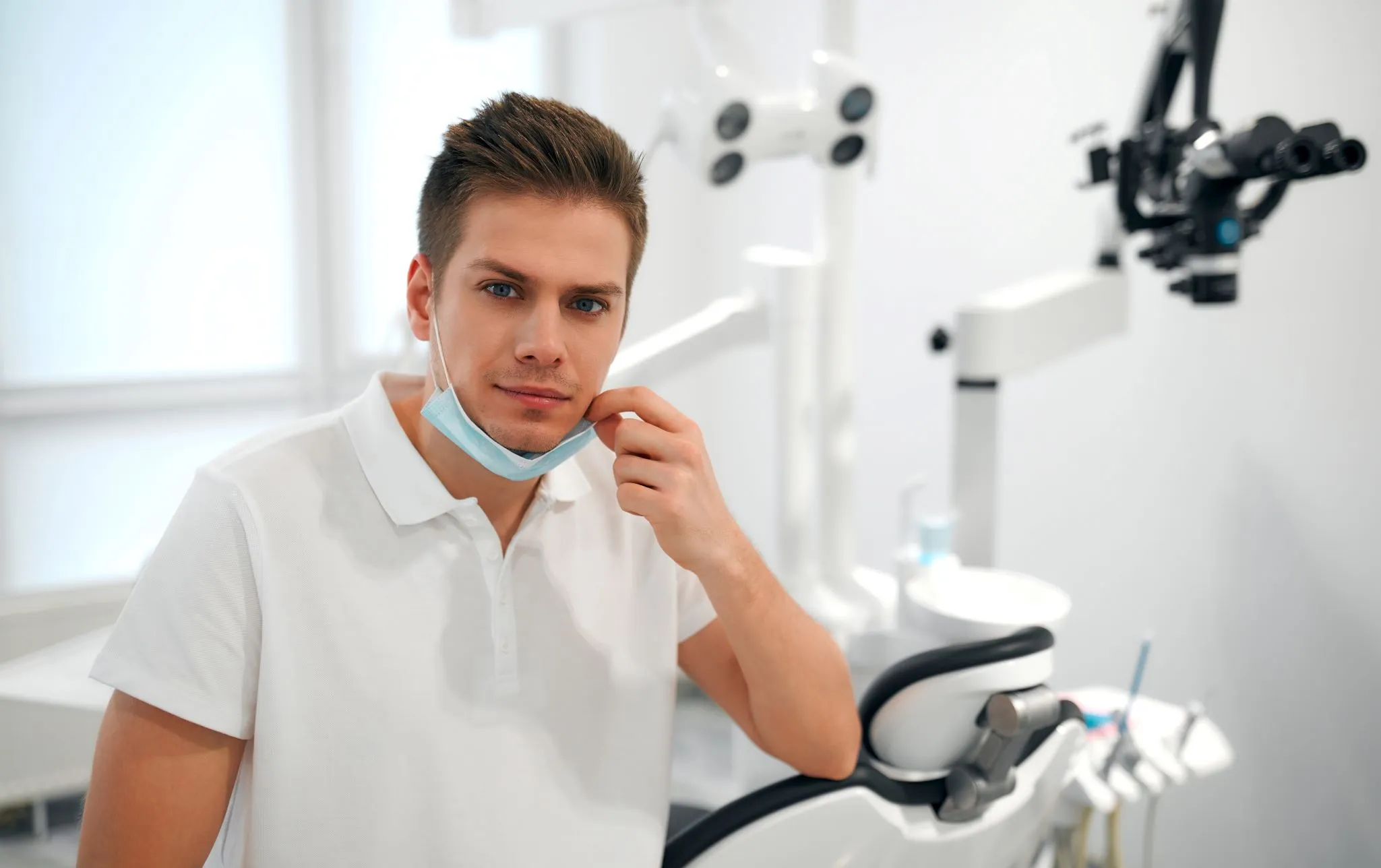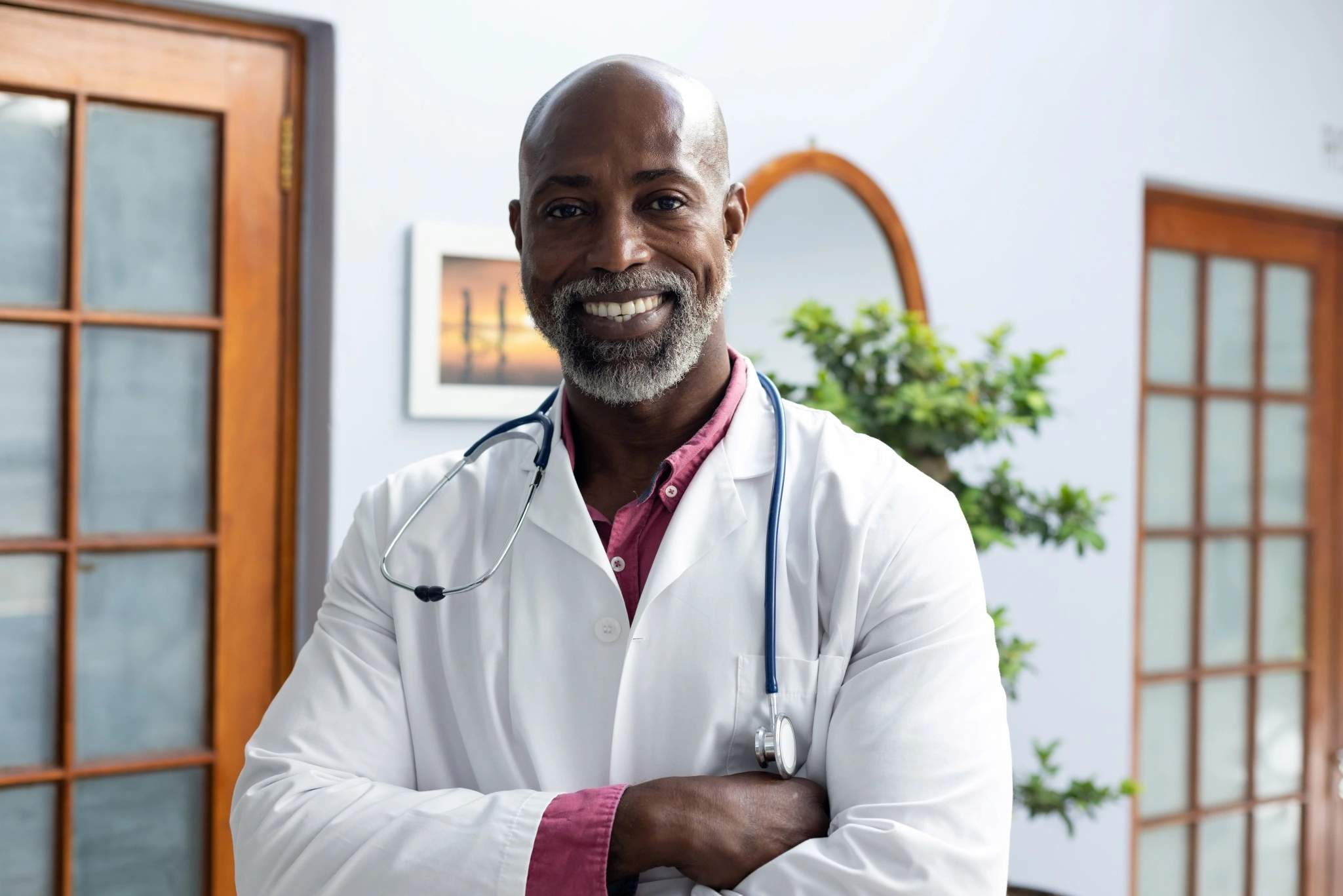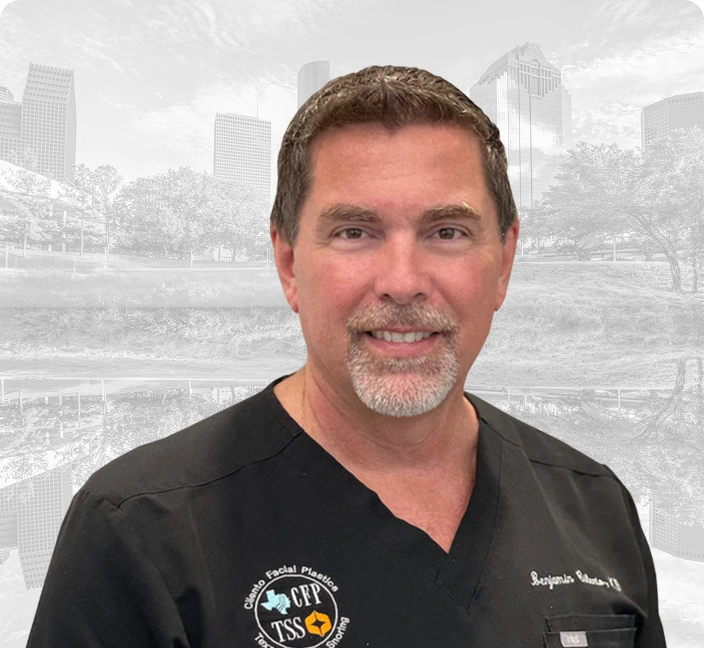Key Takeaways
- If you’re experiencing symptoms like loud snoring, daytime fatigue, or sudden awakenings with a gasp, you might have sleep apnea.
- Your primary care physician is your first point of contact and can provide initial assessments and referrals.
- For specialized care, you may be referred to a sleep medicine specialist, an ENT(Ear, Nose and Throat doctor), a pulmonologist, a neurologist, or even a dentist.
- Sleep studies, either at home or in a lab, are essential for diagnosing sleep apnea.
- Treatment options are varied, including CPAP machines, oral appliances, surgery, and lifestyle changes.
Decoding Sleep Apnea: The Right Doctor for Effective Treatment
Imagine waking up feeling refreshed, energized, and ready to tackle the day ahead. Now, if that’s a distant dream for you, perhaps it’s time to talk about sleep apnea, a condition that can turn restful nights into a restless struggle. But worry not, as there’s a range of medical professionals ready to help you reclaim your nights for restful sleep.
Identifying Sleep Apnea
First things first, let’s understand what we’re dealing with. Sleep apnea is a disorder where your breathing stops and starts repeatedly as you sleep. It’s more than just snoring; it’s a serious condition that can lead to significant health issues if left untreated. The most common type, obstructive sleep apnea, occurs when throat muscles relax too much to allow normal breathing. But how do you know if you have it?
Health Professionals for Diagnosis and Care
There’s a team of health professionals who can guide you through the diagnosis and treatment of sleep apnea. Each has a unique role, and depending on your symptoms and health history, you might meet one or several of these experts.
First Steps to Take for Suspected Sleep Apnea
If you suspect you have sleep apnea, the first step is to observe and document your symptoms. This information is crucial for your doctor to understand what’s happening when you’re asleep.
Recognizing Symptoms of Sleep Apnea
Here’s what to look out for:
- Loud snoring that disturbs others
- Episodes of stopped breathing observed by another person
- Abrupt awakenings accompanied by gasping or choking
- Waking up with a dry mouth or sore throat
- Morning headache
- Difficulty staying asleep (insomnia)
- Excessive daytime sleepiness (hypersomnia)
- Attention problems and irritability
Documenting Your Sleep Patterns
Keeping a sleep diary for a couple of weeks can be incredibly helpful. Note down:
- What time you go to bed and wake up
- Any nighttime awakenings and their duration
- Episodes of snoring or breathing difficulties if you’re aware of them
- How you feel in the morning and throughout the day
Primary Care Physicians: Your First Line of Defense
Now, armed with your sleep diary, it’s time to chat with your primary care physician (PCP). They’re your first line of defense. They’ll review your symptoms, consider your overall health, and might suggest some initial strategies to improve your sleep. If your PCP suspects sleep apnea, they’ll likely refer you to a specialist.
The Role of Your Family Doctor
Your family doctor is skilled at handling a wide range of health concerns, including initial concerns about sleep. They’ll look at the big picture of your health and guide you towards the next steps.
When to Get a Referral from Primary Care
If your symptoms are severe, or if your PCP’s initial suggestions don’t improve your sleep, it’s time for a referral to a sleep specialist. But let’s pause here and take a deeper dive into the world of sleep specialists in the next section of our discussion.
Consulting an Ear, Nose, and Throat Doctor (ENT)
If your primary care physician suspects that your sleep apnea is related to a structural issue in your nose, throat, or ear, they might send you to see an ENT specialist. These doctors are experts in obstructions that can lead to sleep apnea, like enlarged tonsils or a deviated septum. They can provide targeted treatments that may include medications, CPAP machines, or even surgery to remove the obstruction.
The Pulmonologist’s Perspective
A pulmonologist is a lung specialist who can be crucial if your sleep apnea is influenced by respiratory issues. They’ll delve into the health of your lungs and airways. Pulmonologists are particularly important if you have an underlying condition like COPD (Chronic Obstructive Pulmonary Disease), which can complicate sleep apnea. They’re also the go-to experts for managing CPAP therapy, ensuring you’re getting the right air pressure to keep your airways open at night.
Because sleep apnea can affect your oxygen levels during sleep, it’s vital to ensure your lungs are functioning correctly. This is where the pulmonologist’s expertise is invaluable. They can also help you understand how sleep apnea impacts your respiratory health and work with you to improve it.
Moreover, if you struggle with CPAP therapy, they can suggest alternatives or adjustments to make the treatment more comfortable and effective for you. Remember, it’s all about getting that good night’s sleep, and sometimes it takes a bit of fine-tuning to get there.
When to See a Neurologist
Neurologists come into play if there’s a suspicion that your sleep apnea might be related to nerve or brain function. Central sleep apnea, a less common type of the disorder, occurs when your brain doesn’t send the right signals to the muscles that control breathing. A neurologist can provide insight into this and may recommend treatments that can help manage the condition, like adaptive servo-ventilation (ASV).

How Dentists Can Help with Sleep Apnea
Surprisingly, your dentist can be a key player in treating sleep apnea. If your condition is mild to moderate, they can offer oral appliance therapy. These custom-fit devices adjust the position of your jaw or tongue to keep your airway open while you sleep. It’s a less invasive option compared to surgery and can be just as effective for some people.
Testing for Sleep Apnea: What to Expect
Diagnosing sleep apnea usually involves a sleep study, known as a polysomnogram. This test records a variety of body functions during sleep, including breathing patterns, oxygen levels, heart rate, and brain activity. It can be done in a sleep lab or at home, depending on your situation and the severity of your symptoms.
During the study, sensors will be attached to various parts of your body to monitor your sleep. It might sound a bit daunting, but most people find they can still get a good night’s sleep during the test. The data collected will help your doctor determine if you have sleep apnea and how severe it is.
Types of Sleep Studies
There are different types of sleep studies:
- Polysomnography (PSG): A comprehensive test taken at a sleep center with a technician monitoring you overnight.
- Home sleep apnea testing (HSAT): A simplified test you can do at home. It’s less comprehensive but still effective for diagnosing obstructive sleep apnea.
- Multiple sleep latency test (MSLT): Measures how quickly you fall asleep during the day to assess the level of daytime sleepiness.
- Maintenance of wakefulness test (MWT): Measures your ability to stay awake and alert during the day, which can be affected by sleep apnea.
Home vs Lab Testing: Pros and Cons
Choosing between home and lab testing can be tricky. Home testing is more convenient and less expensive, but it’s not suitable for everyone. It’s best for those with a high risk of moderate to severe obstructive sleep apnea without other serious medical conditions. Lab testing, on the other hand, is more comprehensive and can diagnose a wider range of sleep disorders.
Here’s a quick comparison:
| Home Testing | Lab Testing |
| Conducted in the comfort of your own bed | Conducted in a controlled sleep lab environment |
| Less expensive | More expensive, but often covered by insurance |
| Less comprehensive data collection | More comprehensive data collection |
| May need a follow-up lab test if results are inconclusive | Often conclusive in one night |
Ultimately, the decision should be made with your doctor, considering the specifics of your case.
Treatment Options Beyond CPAP Machines
CPAP machines are the most common treatment for sleep apnea, but they’re not the only option. Depending on your situation, there might be other ways to manage your sleep apnea.
Let’s explore some alternatives.
Oral Appliance Therapy
As mentioned earlier, oral appliance therapy involves wearing a custom-fit device in your mouth while you sleep. It’s similar to a sports mouthguard and works by keeping your airway open. This option is particularly appealing for those who find CPAP machines uncomfortable or cumbersome.
Surgery as a Last Resort
Surgery might be considered if other treatments have failed and there’s a clear anatomical problem contributing to your sleep apnea, like large tonsils or a deviated septum. Procedures can range from relatively minor to more complex surgeries like maxillomandibular advancement.
However, surgery is typically seen as a last resort, and the decision to proceed should be made carefully after discussing all the potential risks and benefits with your doctor.

Alternative Therapies and Lifestyle Changes
Besides medical interventions, lifestyle changes can make a big difference. Here are some tips:
- Lose weight if you’re overweight.
- Exercise regularly to improve your overall health and sleep.
- Avoid alcohol and sedatives that can relax your throat muscles.
- Quit smoking, as it can increase inflammation and fluid retention in your airway.
- Try sleeping on your side instead of your back to keep your airway open.
These changes can not only improve your sleep apnea but also boost your general well-being.
Living With Sleep Apnea
Living with sleep apnea is about more than just nighttime management; it’s a 24-hour commitment to your health. The treatments and lifestyle changes you make are part of a continuous effort to ensure you’re getting the restful sleep you need.
But remember, it’s not a journey you take alone. Regular check-ups with your sleep specialist are key to monitoring your progress and adjusting treatment as necessary. They’ll help you stay on track and make any needed changes to your treatment plan.
Understanding Continuous Care
Continuous care means being proactive about your sleep health. It involves staying in touch with your healthcare team, being honest about how well your treatment is working, and recognizing when it’s time to try something new. It also means educating yourself about sleep apnea and being diligent with the treatment plan you and your doctor have chosen.
Most importantly, continuous care means not getting discouraged if the first treatment doesn’t work perfectly. Finding the right solution for sleep apnea can be a process, and it’s important to keep a positive and patient attitude.
Support Groups and Resources
You’re not alone in this. There are many support groups and resources available for people with sleep apnea. These communities provide a space to share experiences, tips, and encouragement. Additionally, organizations like the American Sleep Apnea Association offer a wealth of information and support to help you navigate living with sleep apnea.
FAQ
Can I treat sleep apnea without seeing a doctor?
While lifestyle changes such as losing weight and quitting smoking can help alleviate symptoms of sleep apnea, it’s critical to see a doctor for a proper diagnosis and treatment plan. Untreated sleep apnea can lead to serious health complications, so professional medical advice is essential.
Is sleep apnea always treated with a CPAP machine?
No, CPAP machines are a common treatment, but they’re not the only option. Depending on the severity and type of sleep apnea, treatments can include oral appliances, surgery, positional therapy, and lifestyle changes. Your doctor will recommend the best treatment for your specific case.
What lifestyle changes can improve sleep apnea?
Lifestyle changes that can improve sleep apnea include:
- Losing weight if you’re overweight
- Exercising regularly
- Avoiding alcohol and sleeping pills
- Quitting smoking
- Keeping nasal passages open at night with a saline spray or allergy medication
- Changing your sleep position to improve breathing
How does a dentist fit into sleep apnea treatment?
A dentist can provide oral appliance therapy, which involves wearing a custom-fit device in your mouth at night to keep your airway open. This can be an effective treatment for those with mild to moderate obstructive sleep apnea who can’t tolerate a CPAP machine.
What signs suggest I should consult a sleep specialist?
If you’re experiencing chronic snoring, long pauses in breathing during sleep, excessive daytime sleepiness, or you wake up feeling unrefreshed, it’s time to consult a sleep specialist. They can provide a proper diagnosis and tailored treatment plan to help you get the restful sleep you deserve.



